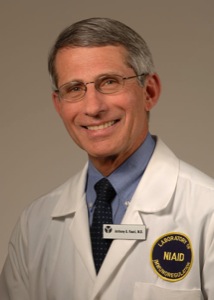
MARYLAND – A large-scale clinical study sponsored by the National Institute of Allergy and Infectious Diseases (NIAID) has found men and women infected with HIV reduced the risk of transmitting the virus to their sexual partners by taking oral anti-retroviral medicines when their immune systems were relatively healthy.
The clinical trial, known as HPTN 052, was slated to end in 2015 but the findings are being released early as the result of a scheduled interim review of the study data by an independent data and safety monitoring board (DSMB). The DSMB concluded that it was clear that use of anti-retrovirals by HIV-infected individuals with relatively healthier immune systems substantially reduced transmission to their partners. The results are the first from a major randomized clinical trial to indicate that treating an HIV-infected individual can reduce the risk of sexual transmission of HIV to an uninfected partner.
“Previous data about the potential value of anti-retrovirals in making HIV-infected individuals less infectious to their sexual partners came largely from observational and epidemiological studies,” said NIAID Director Anthony S. Fauci, M.D. “This new finding convincingly demonstrates that treating the infected individual – and doing so sooner rather than later – can have a major impact on reducing HIV transmission.”
The study began in 2005 at 13 sites across Africa, Asia and the Americas. Patients were split into two groups. In one, HIV infected partners were immediately given a course of anti-retroviral drugs. The other group only received the treatment when their white blood cell count fell. Both were given regular testing for the virus and free condoms. Among those immediately starting anti-retroviral therapy, there was only one case of transmission. In the other group, there were 27 HIV transmissions.
“This breakthrough is a serious game changer and will drive the prevention revolution forward. It makes HIV treatment a new priority prevention option,” said Michel Sidibe, executive director of the Joint United Nations Program on HIV/AIDS (UNAIDS).
The World Health Organization says sexual transmission accounts for 80 percent of all new HIV infections. Its director general, Dr. Margaret Chan, described the announcement as a “crucial development.”
“The findings from this study will further strengthen and support the new guidance that WHO is releasing in July to help people living with HIV protect their partners,” Chan said.










